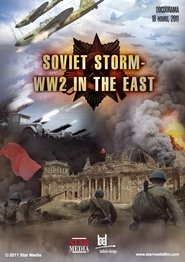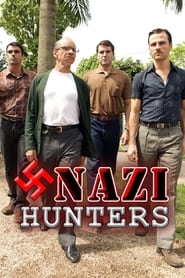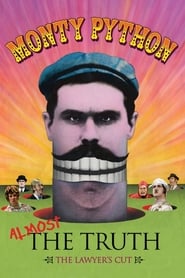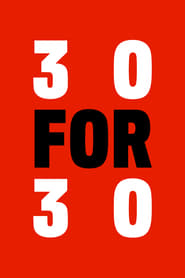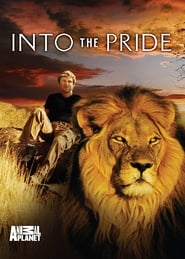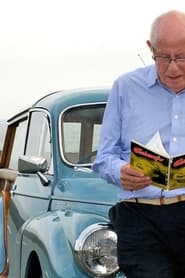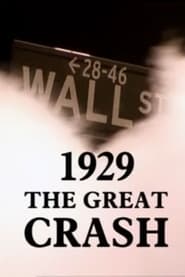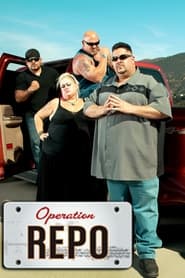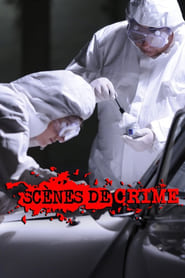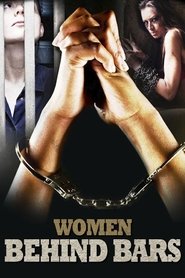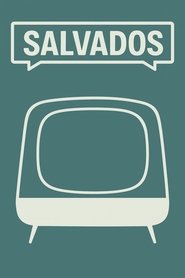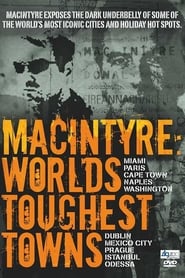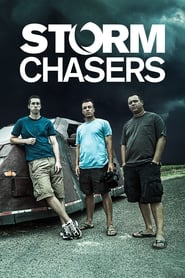New Documentary TV Series on fuboTV - Page 30
-
Soviet Storm: WW2 in the East
2010
star 8.2The epic television history of the Second World War’s Eastern Front giving an unprecedented Russian perspective on the war’s most decisive and bloody theater. -
Nazi Hunters
2010
Nazi Hunters
2010
Witnesses and historians retell the events leading up to the capture and or death of some of World War Two's most heinous Nazi fugitives. -
History in HD
2009
History in HD
2009
Witness history's most compelling and life-altering events as they've never been seen before. -
Monty Python: Almost the Truth (The Lawyer's Cut)
2009
star 7.5A 2009 television documentary series in six parts that covers 40 years of the surreal comedy group Monty Python, from Flying Circus to present day projects such as the musical Spamalot. The series highlights their childhood, schooling and university life, and pre-Python work. The series featured new interviews with surviving members John Cleese, Terry Gilliam, Eric Idle, Terry Jones and Michael Palin, alongside archive interview footage of Graham Chapman and interviews with several associates of the Pythons, including Carol Cleveland, Neil Innes and Chapman's partner David Sherlock, along with commentary from modern comedians. -
30 for 30
2009
30 for 30
2009
star 7.430 for 30 is the title for a series of documentary films airing on ESPN, its sister networks, and online highlighting interesting people and events in sports history. This currently includes four "volumes" of 30 episodes each, a 13-episode series under the ESPN Films Presents title in 2011–2012, and a series of 30 for 30 Shorts shown through the ESPN.com website. The series has also expanded to include Soccer Stories, which aired in advance of the 2014 FIFA World Cup, and audio podcasts. This entry refers to the main Volumes of the series presented by ESPN -
Zoo Vets
2009
Zoo Vets
2009
Think a root canal is tough? Try performing one on a tiger. Caring for animals is the ultimate medical challenge. These are patients who can't speak, are often dangerous, and represent countless unique anatomical systems. Yet zoo vets somehow manage to give specialized care to each creature they treat. We go behind the scenes at our country's largest zoos and aquariums to witness these doctors handle every imaginable emergency, from an otter with kidney stones to a Silverback Gorilla in need of an ultrasound. It's all in a day's work. -
Into The Pride
2009
Into The Pride
2009
star 5Animal Planet's large predator expert Dave Salmoni embarks on the most transformative mission of his lifeand also the most relevant one. Leaving the city life of Toronto, Salmoni heads deep into the Namibian bush to spend six months ALONE among a pride of lions and the diverse and often deadly wildlife in Africa. His mission is twofold to return to his wild roots and to head INTO THE PRIDE to save a rogue pride of lions from elimination. After spending much time in the "urban jungle" as a host and executive producer, Salmoni is given the ultimate opportunity to reconnect with two of his lasting passions the serenity and solitude of living in the wild and his love of big cats, particularly lions. -
Royal Inquest
2009
Royal Inquest
2009
-
Warriors
2009
Warriors
2009
star 9Warriors is a documentary series that airs on The History Channel in the United States. The show was hosted by Terry Schappert, a sergeant in the United States Army Special Forces. The show focused on historical warrior cultures, major battles, and military leaders. -
Britain's Best Drives
2009
Britain's Best Drives is a six-part 2009 British television series in which Richard Wilson travels across the UK in reviewing the best driving roads from a motoring guide of the 1950s. In each episode he drives a different car of the period. There was also a seventh episode where Wilson learns how to drive a manual transmission car again. -
UFC Primetime
2009
UFC Primetime
2009
star 5.5UFC Primetime is a television series currently airing on FX in the United States. The show chronicles the training regimens of two UFC fighters prior to their next upcoming main event bout. -
1929
2009
1929
2009
Calling on historians and economists, William Karel conducts a detailed analysis of the 1929 crash of Wall Street and the Great Depression. -
Operation Repo
2008
Operation Repo
2008
star 4.2Operation Repo is an American television program that depicts the world of car repossession with a team that portrays fictionalized tales of repossessions from California's San Fernando Valley. Similar to another truTV show, Southern Fried Stings, the series is filmed in a cinema verité style but consists of scripted and dramatized performances by actors. The show is filmed by recreating scenes in which the cast conducts repossessions of automobiles for finance companies. In the show they also perform repossessions of other exotic and strange items such as luxury boats, planes, limousines, motorcycles, ATVs, Zambonis, ice cream trucks, tow trucks, buses, trucks, expensive bicycles, hot air balloons, wood chippers, forklifts, and tanning beds. -
Smrt na bitevním poli
2008
Exploring the mysteries of history's well-known battles. Shot on location in France, Britain, North Africa and Spain. -
Cold Blood
2008
Cold Blood
2008
star 6.8Combining the thrill of a mystery with the visceral experience of true crime drama, Cold Blood presents competing versions of what may have happened, and reenacts the events from different perspectives as new evidence comes to light. -
Women Behind Bars
2008
-
Salvados
2008
-
Street Patrol
2008
Street Patrol
2008
Street Patrol is a reality television series based and filmed in various cities across the United States. It aired on truTV in the United States and Crime & Investigation Network in Australia. The show is produced by Morgan Langley & John Langley, the producers of the reality television series COPS. Street Patrol is made up of outtake footage from COPS that did not originally air. Many of these segments are from the early 1990s. Segments of Street Patrol often contain less action scenes and more police procedural work, and the series has earned a reputation from some critics as being less interesting and exciting than COPS. For a time in October to December 2012, reruns of Street Patrol aired on the G4 cable network. -
Storm Chasers
2007
Storm Chasers
2007
star 6.6Anyone who has seen "The Wizard of Oz" knows that an oncoming tornado is nothing to trifle with, but "extreme filmmaker" Sean Casey takes viewers right into the heart of Tornado Alley and inside the storms themselves to capture valuable research data and unprecedented footage.
 Netflix
Netflix
 Amazon Prime Video
Amazon Prime Video
 Apple iTunes
Apple iTunes
 Apple TV Plus
Apple TV Plus
 Disney Plus
Disney Plus
 Google Play Movies
Google Play Movies
 Paramount Plus
Paramount Plus
 Hulu
Hulu
 HBO Max
HBO Max
 YouTube
YouTube
 fuboTV
fuboTV
 Peacock
Peacock
 Peacock Premium
Peacock Premium
 Amazon Video
Amazon Video
 The Roku Channel
The Roku Channel
 AMC+
AMC+
 Kocowa
Kocowa
 Hoopla
Hoopla
 The CW
The CW
 Vudu
Vudu
 Starz
Starz
 Showtime
Showtime
 PBS
PBS
 Pantaflix
Pantaflix
 FXNow
FXNow
 Tubi TV
Tubi TV
 Kanopy
Kanopy
 Comedy Central
Comedy Central
 Crunchyroll
Crunchyroll
 Microsoft Store
Microsoft Store
 Redbox
Redbox
 Sun Nxt
Sun Nxt
 ABC
ABC
 DIRECTV
DIRECTV
 Crackle
Crackle
 Fandor
Fandor
 Plex
Plex
